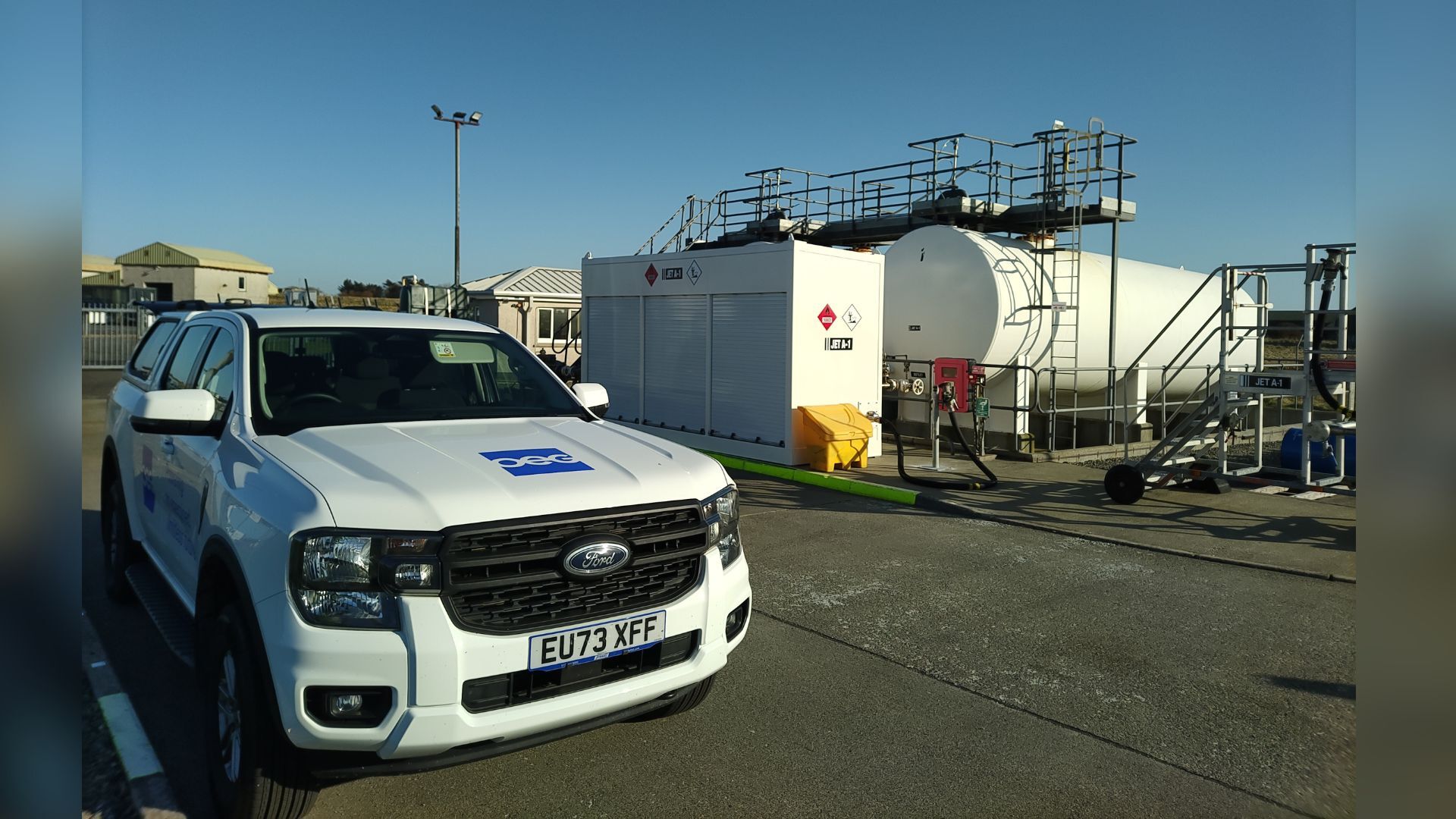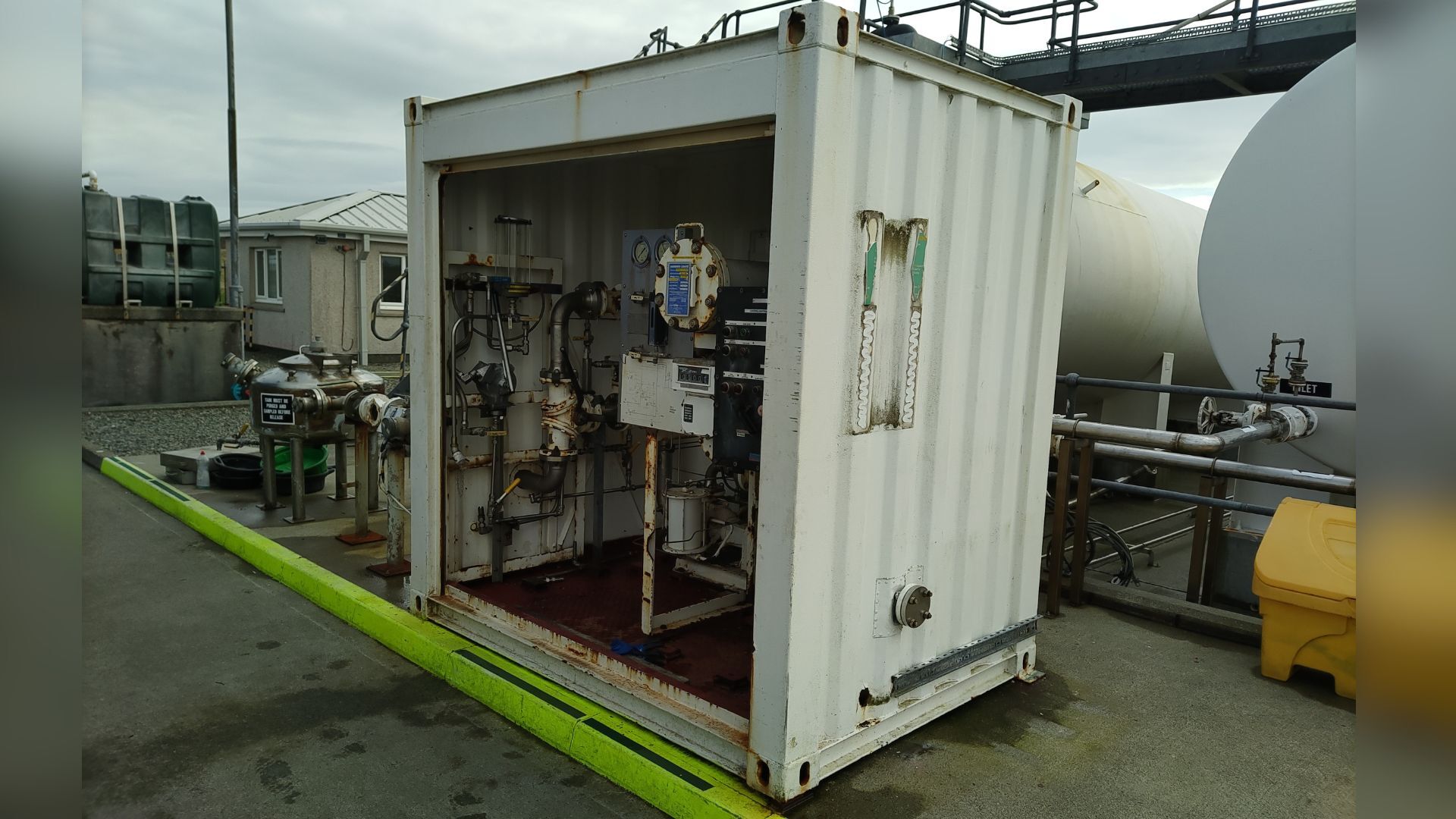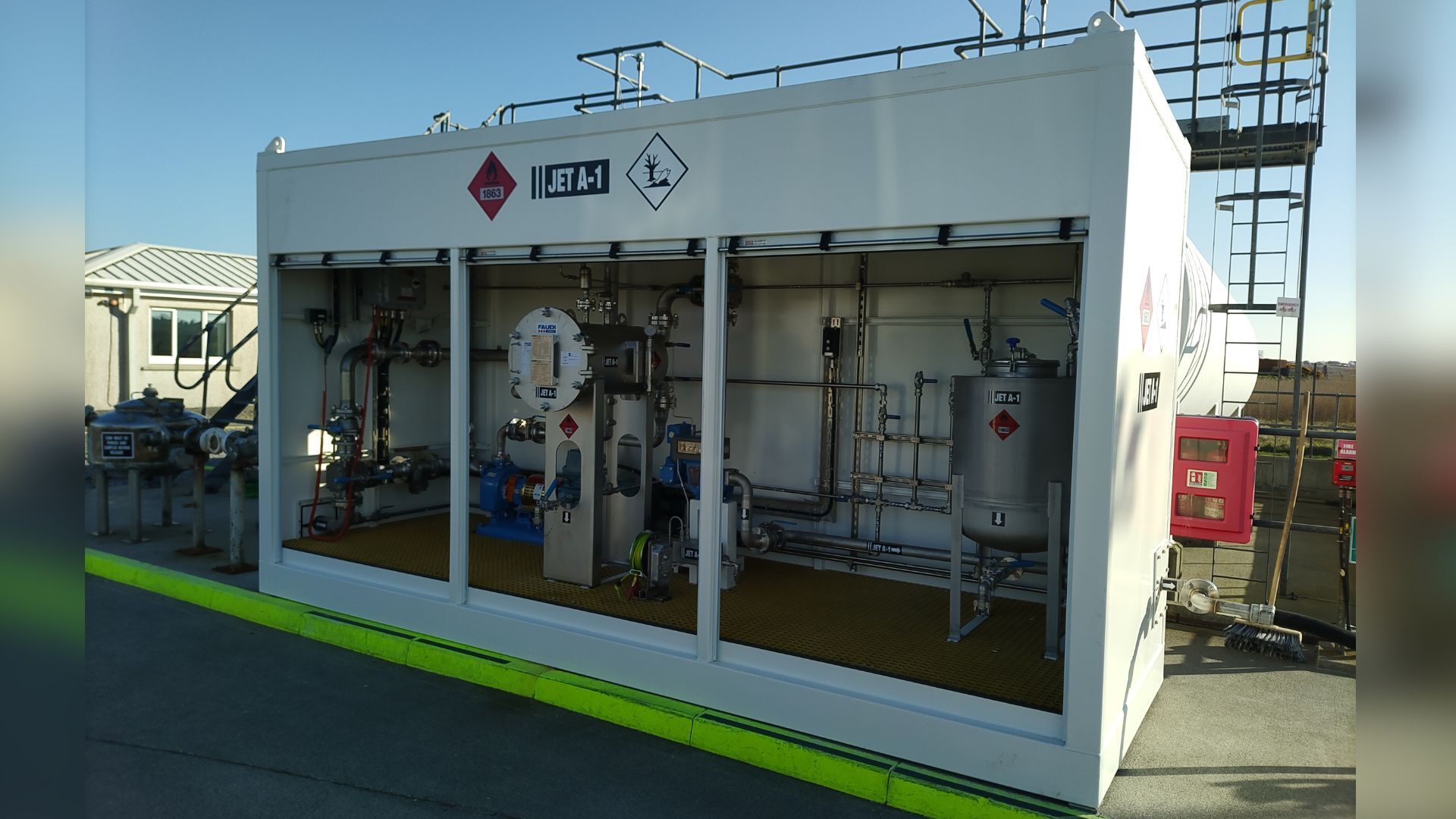Overview
OEG was engaged by North Air, a leading provider of into-plane fuelling solutions, to deliver a modern bowser filling and sampling system for the tank farm at Stornoway Airport. The upgrade was essential to replace the existing infrastructure, which had been in service for over 30 years, and to align with the evolving demands of contemporary commercial airport operations.
Challenges
The existing refuelling system was outdated and inefficient. The original design offered limited working space and required operators to manually transfer fuel buckets across site making the daily operation of equipment handling and Jet A-1 fuel sampling required for commercial and search & rescue aircraft challenging.
Located on the exposed Atlantic coast of Scotland’s Western Isles, the system had also suffered extensive wear and corrosion due to relentless adverse weather conditions. These factors combined to make the replacement of the aging infrastructure not just important, but essential to ensure safe, reliable, and efficient fuelling operations.
Workscope
OEG delivered a turnkey solution encompassing the design, build, installation, and testing of a modern tank farm bowser filling and sampling system at Stornoway airport purpose-built to meet the rigorous demands of contemporary aviation operations.
Solution
A new cabinet - twice the length of the original - was installed, housing the transfer pump, filtration system, and daily sampling equipment all within a single, integrated unit. This upgrade eliminated the need for personnel to manually transfer fuel buckets across the site, allowing operations to safely and efficiently take place within the cabinet itself. The interior was designed with ample space to accommodate multiple operators simultaneously.
To ensure durability in the island’s harsh coastal environment, the cabinet was engineered with weather resilience in mind. Features included roller doors, sealed piping and cable entry points, and a robust offshore grade paint system for long-term corrosion protection. Additionally, the sloped roof design facilitates effective runoff of rain and snow, further enhancing the system’s reliability in extreme weather conditions.
The result is a modern, fit-for-purpose refuelling system that effectively addressed long-standing operational and environmental challenges, improving safety and efficiency in the workspace for personnel.






